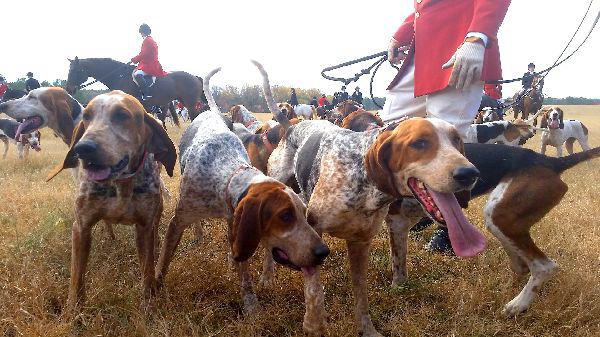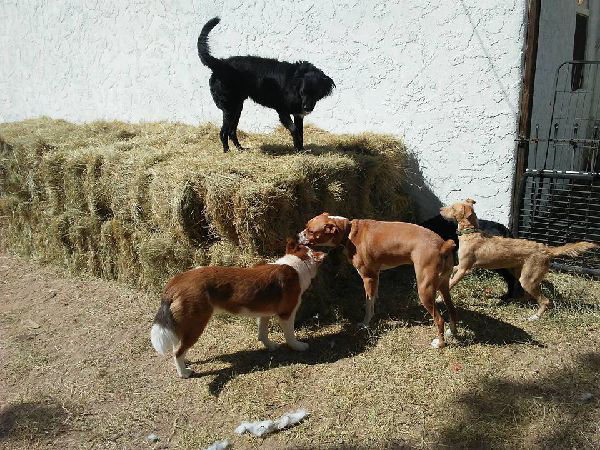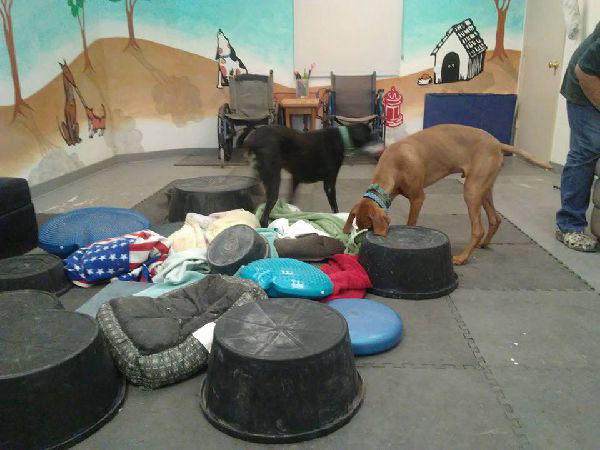
Hunting
You can make your pet hunt for its meals by hiding stuffed food puzzle toys or small piles of kibble around your house. Hide one of your pet's meals right before you leave him home alone, and he will have a great time hunting for his food while you’re away.
Giving your dog a chance to use his powerful nose can really wear him out! It’s easy to teach your dog to find hidden treats, your smelly socks, or give your dog a job and teach him to detect mold in your house.

Chase
Most pets love to chase things. There is a great video on YouTube of a turtle chasing a toy. The Chase Game is perfect for all animals whether furred, finned, scaled or feathered

Social Interaction
Giving your dog a chance to use his powerful nose can really wear him out! It’s easy to teach your dog to find hidden treats. When you introduce the Find It game, start out by choosing hiding spots that allow your dog to find the “hidden” treats easily. Try placing treats behind the legs of furniture, partially in view. After you’ve hidden the treats, go get your dog and say “Find it!” right before letting him into the room. Encourage him to look around for the treats. (You might have to point them out the first few times you play the Find It game.) As your dog becomes better and better at finding the treats, you can hide them in more difficult places, like behind pillows or underneath objects.

Chew Shred Dig
Pets of all ages need to chew and will spend hours doing it to keep their jaws strong and their teeth (or beak) clean. They also chew for fun, for stimulation, and to relieve anxiety. Whether you have a puppy or a parrot, it’s important to provide a variety of appropriate and attractive, and sometimes nutricious, chew toys.

Play
Play is its own reward, its own reason for being. When you play, you aren’t locked into a set way of doing things. You can experiment and invent.
* Play is done for it’s own sake. Play has no direct survival value.
* It is voluntary. You don’t “have to” play.
* Play is inherently reinforcing. Play is fun so you want to play more.
* Play provides freedom from time.
* Play produces a diminished consciousness of self.

Challenges
Imagine if our dogs can help us around the house. With our dogs doing the chores, life would be so much easier, right? Some trainers say we should give our dogs jobs in order to solve their behavior issues, and in reality, that is pretty much exactly what you should do. However, putting on a backpack and adding a jar of pickles for weight is not a "job"; it does not challenge the dog in anyway except physically.
Although most modern dogs are kept as pets, there are still a tremendous number of ways in which dogs can and do assist humans, and more uses are found for them every year. Most of those "jobs" are pretty specialized however, and the majority of owners have neither the need for a working dog or the time necessary to transport the dog somewhere to do it's "job". But teaching your dog to do the laundry helps you nearly everyday and you don't need to fire up the car.
